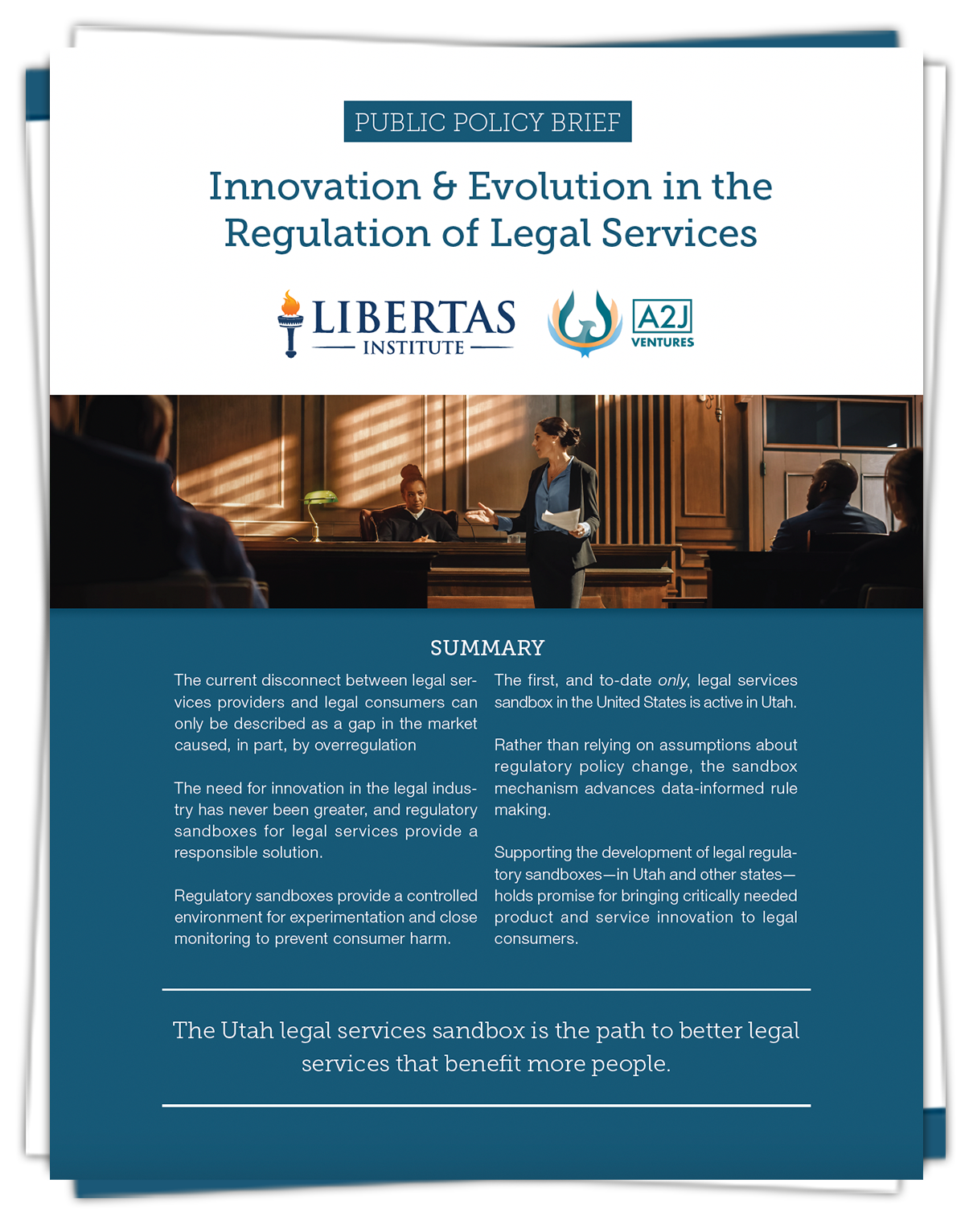Authored by Caden Rosenbaum, Tech & Innovation Policy Analyst
The current disconnect between legal services providers and legal consumers can only be described as a gap in the market caused, in part, by overregulation
The need for innovation in the legal industry has never been greater, and regulatory sandboxes for legal services provide a responsible solution.
Regulatory sandboxes provide a controlled environment for experimentation and close monitoring to prevent consumer harm.
The first, and to-date only, legal services sandbox in the United States is active in Utah.
Rather than relying on assumptions about regulatory policy change, the sandbox mechanism advances data-informed rule making.
Supporting the development of legal regulatory sandboxes—in Utah and other states—holds promise for bringing critically needed product and service innovation to legal consumers.





